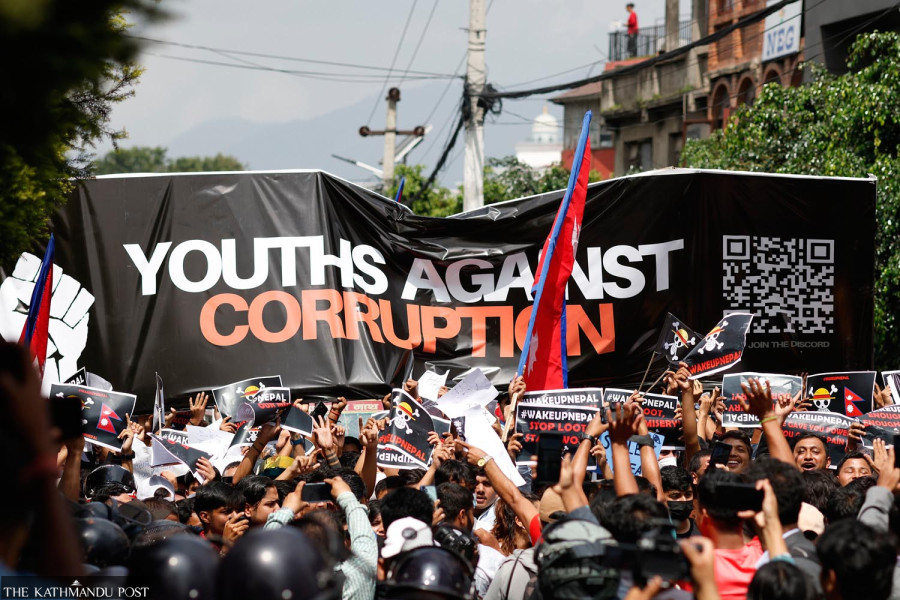Editorial
Gen Z, all together now
This rare chance must not be lost in silly debates over who will represent Gen Z in meetings with other stakeholders.
The ashes of hundreds of buildings torched across the country by enraged mobs reacting to the government’s fatal response to the Gen Z protest have started to settle. The two initial triggers of the September 8 protest—the social media ban and frustration over children of political leaders showing off—have morphed into agendas once believed to be realistically unattainable: A generational shift in Nepali politics and clean and effective governance.
As multiple youth groups try to stake claim to the protest’s leadership and to represent the generation in a post-revolution negotiations to form an interim government, the Gen Z representation seems to be hampered by a lack of clear and credible agendas. Political forces, including some controversial leaders, have tried to hijack the movement. The Gen Z should not be guided by the forces whose corrupt shenanigans necessitated the protest in the first place. Instead, they must independently consolidate their collective agenda, come up with common demands and ensure credible youth representation in all steps leading to the formation of the new government.
There is now a troubling power vacuum in the country. An independent interim government with the mandate to conduct elections needs to be formed at the earliest to navigate. And youth representation in decision-making is non-negotiable in this transition. Such an interim government must be led by a neutral figure with a proven record of capability and no party affiliations, either in the present or the past. And they must consult the youth in every decision before the election. This is vital.
We have seen how Bangladesh has been mired in endless debates over who actually represents the students who led the anti-government protests in July-August 2024—and whether this or that party should be allowed to take part in future elections. The army there has its own interests. As do other powerful international stakeholders in the country. This is why all sides to the current negotiations in Nepal must have a clear idea of the path to the next elections and its free and fair conduction. That would also be the biggest tribute to the members of the Gen Z and others martyred in the recent protest. Then there is the task of holding those responsible for the tragic loss of young lives accountable.
The two-day protest has offered a chance to turn a new chapter in Nepali politics. This opportunity must not be lost to silly debates over who will represent Gen Z in meetings with other stakeholders in the current transition, or which secondary agenda must be addressed. So long as informed members of the Gen Z who have internalised the spirit of the protest and are clear on the non-negotiables sit down in the talks, there is little chance of the generation’s voice being lost even amid all the political noise.
(This editorial was jointly written by The Post’s all-Gen Z Editorial team.)




 17.12°C Kathmandu
17.12°C Kathmandu













